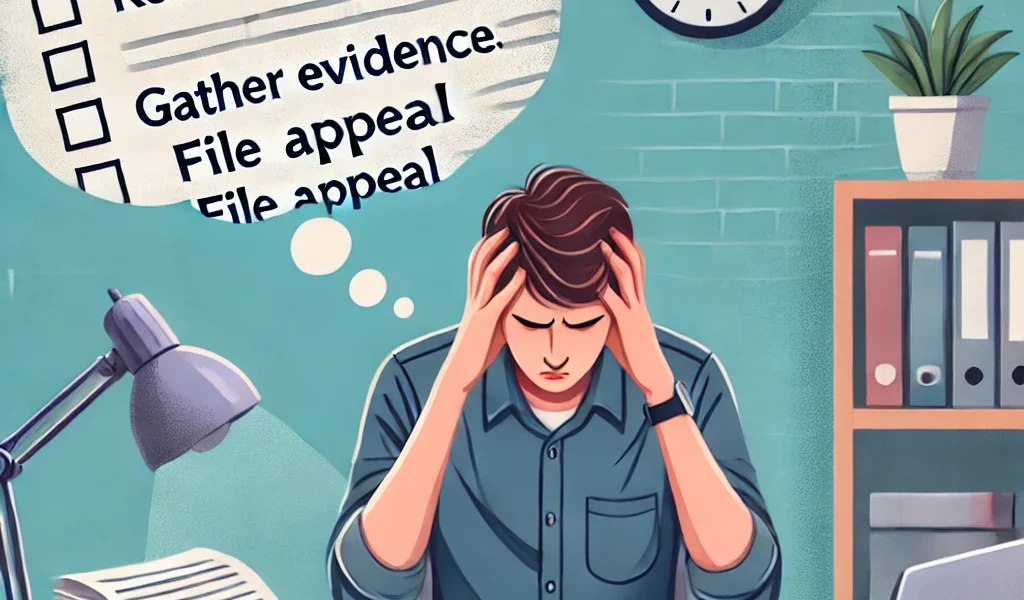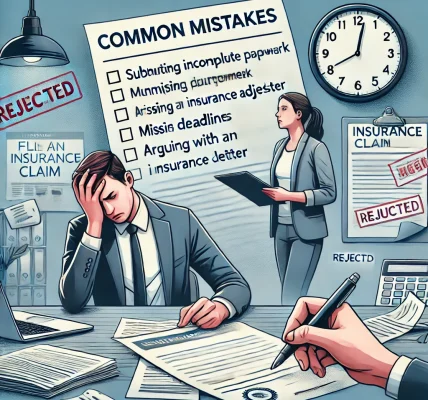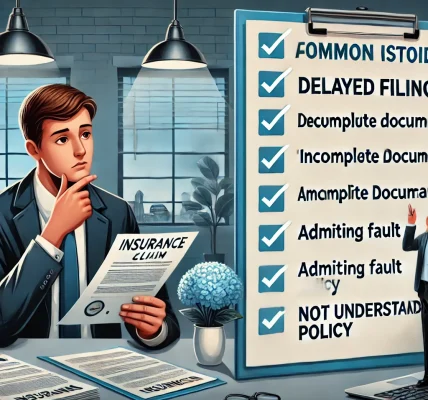Having your insurance claim denied can be frustrating and stressful, especially when you’re relying on financial support to recover from an unfortunate event. However, a denial does not mean the end of the road. Many denied claims can be successfully appealed and reconsidered with the right approach.
In this comprehensive guide, we will walk you through the steps to take if your insurance claim is denied, common reasons for denials, and expert tips to increase your chances of a successful appeal.
Understanding Why Insurance Claims Get Denied
Before taking action, it’s essential to understand why insurance companies deny claims. Some common reasons include:
1. Incomplete or Incorrect Documentation
If your claim is missing required documents or contains incorrect details, the insurer may reject it. Always ensure that you provide all necessary paperwork accurately.
2. Policy Exclusions
Every insurance policy has exclusions—specific conditions or events not covered under the policy. Reviewing your policy’s terms will help you understand whether your claim falls under an exclusion.
3. Late Claim Filing
Most insurance policies require claims to be filed within a specific timeframe. If you miss this deadline, your claim may be denied.
4. Lack of Medical Necessity (For Health Insurance)
In health insurance claims, the insurer may argue that the treatment was not medically necessary. Getting supporting documentation from your doctor can help in these cases.
5. Pre-existing Conditions
If your policy does not cover pre-existing conditions and the insurer determines that your claim is related to one, it may be denied.
6. Fraud or Misrepresentation
Providing false information or exaggerating the extent of damage or loss can lead to claim denial. Always ensure honesty and accuracy in your claim submission.
7. Non-Payment of Premiums
If you have outstanding premiums or your policy has lapsed due to non-payment, the insurer may reject your claim.
Steps to Take After an Insurance Claim Denial
If your claim is denied, don’t panic. Follow these steps to challenge the decision and seek a resolution:
1. Review the Denial Letter
The first step is to carefully read the denial letter from your insurer. This document will outline the reason(s) for the denial and the steps you can take for an appeal.
Action Plan:
- Identify the specific reason(s) for the denial.
- Note the deadline for filing an appeal (if applicable).
- Gather any relevant documentation to address the issue.
2. Check Your Insurance Policy
Compare the reason for denial with your policy’s terms and conditions. Make sure the insurer’s decision aligns with the coverage details mentioned in your policy.
Action Plan:
- Look for coverage clauses related to your claim.
- Identify any exclusions or limitations that may apply.
- Verify whether your claim was within the policy period.
3. Contact Your Insurance Provider
Reach out to your insurance company to clarify the denial. Sometimes, a simple miscommunication or missing document can be resolved quickly.
Action Plan:
- Call or email the claims department.
- Ask for a detailed explanation of the denial.
- Request a list of documents or actions needed for reconsideration.
4. Gather Additional Supporting Documents
If your claim was denied due to insufficient evidence, collect additional proof to strengthen your appeal.
Examples of Supporting Documents:
- Medical records and doctor’s statements (for health insurance claims)
- Police reports or witness statements (for auto or property claims)
- Repair estimates and photos (for property damage claims)
- Proof of premium payments (to ensure your policy was active)
5. File a Formal Appeal
If your insurer stands by the denial, you have the right to file a formal appeal. Follow the appeal procedure mentioned in your denial letter.
Action Plan:
- Draft a formal appeal letter explaining why your claim should be reconsidered.
- Attach all supporting documents.
- Submit the appeal within the specified deadline.
6. Seek Help from an Insurance Ombudsman or Regulatory Authority
If your appeal is unsuccessful, you may seek help from an insurance ombudsman or your country’s insurance regulatory authority. These bodies help resolve disputes between policyholders and insurance companies.
Action Plan:
- Research the regulatory body overseeing insurance claims in your country.
- File a complaint with relevant evidence.
- Follow the dispute resolution process as instructed.
7. Consider Legal Action (If Necessary)
If all else fails and you believe your claim was wrongfully denied, you may seek legal assistance. Consulting an attorney who specializes in insurance law can help you explore your legal options.
Action Plan:
- Gather all correspondence and documentation related to your claim.
- Consult a lawyer to assess the strength of your case.
- Decide whether to pursue legal action against the insurer.
Tips to Avoid Claim Denial in the Future
While claim denials can be frustrating, there are steps you can take to prevent them in the future.
1. Read and Understand Your Policy
Make sure you are aware of your policy’s coverage, exclusions, and claim filing procedures.
2. Keep Up with Premium Payments
Ensure that you pay your insurance premiums on time to keep your policy active.
3. Provide Complete and Accurate Information
Always double-check your claim form and documentation to ensure accuracy.
4. File Claims Promptly
Submit claims as soon as possible after an incident occurs to avoid missing deadlines.
5. Maintain Proper Documentation
Keep detailed records, receipts, and reports to support any future claims.
Final Thoughts
A denied insurance claim doesn’t mean you are out of options. By understanding the reason for the denial, gathering the right documentation, and following the appeal process, you can increase your chances of getting your claim approved. If necessary, seek help from an ombudsman or legal expert to fight for your rights.
Always be proactive when dealing with insurance claims and stay informed about your policy details. By taking the right steps, you can navigate the claims process efficiently and ensure you receive the benefits you’re entitled to.




